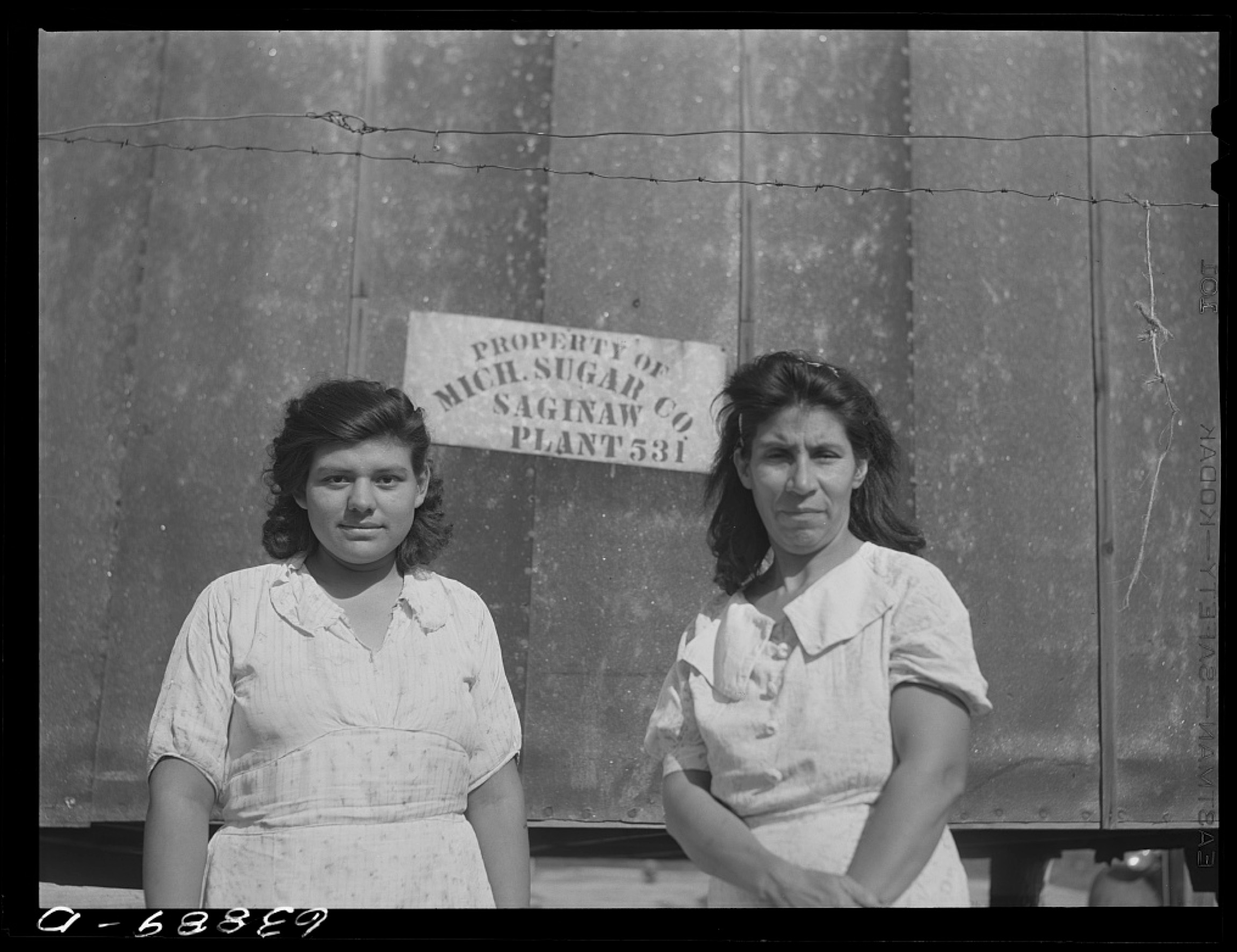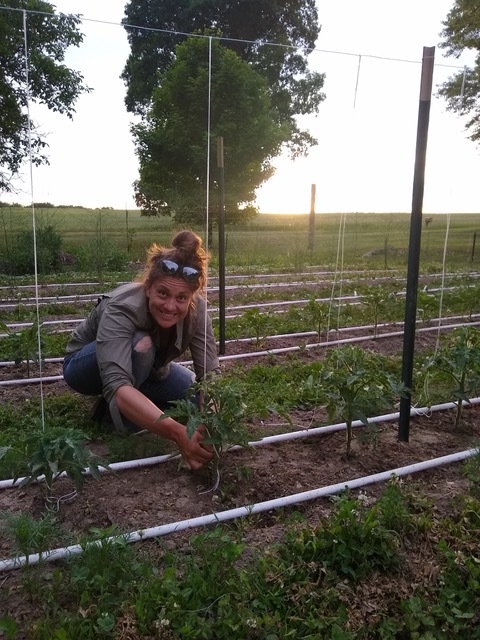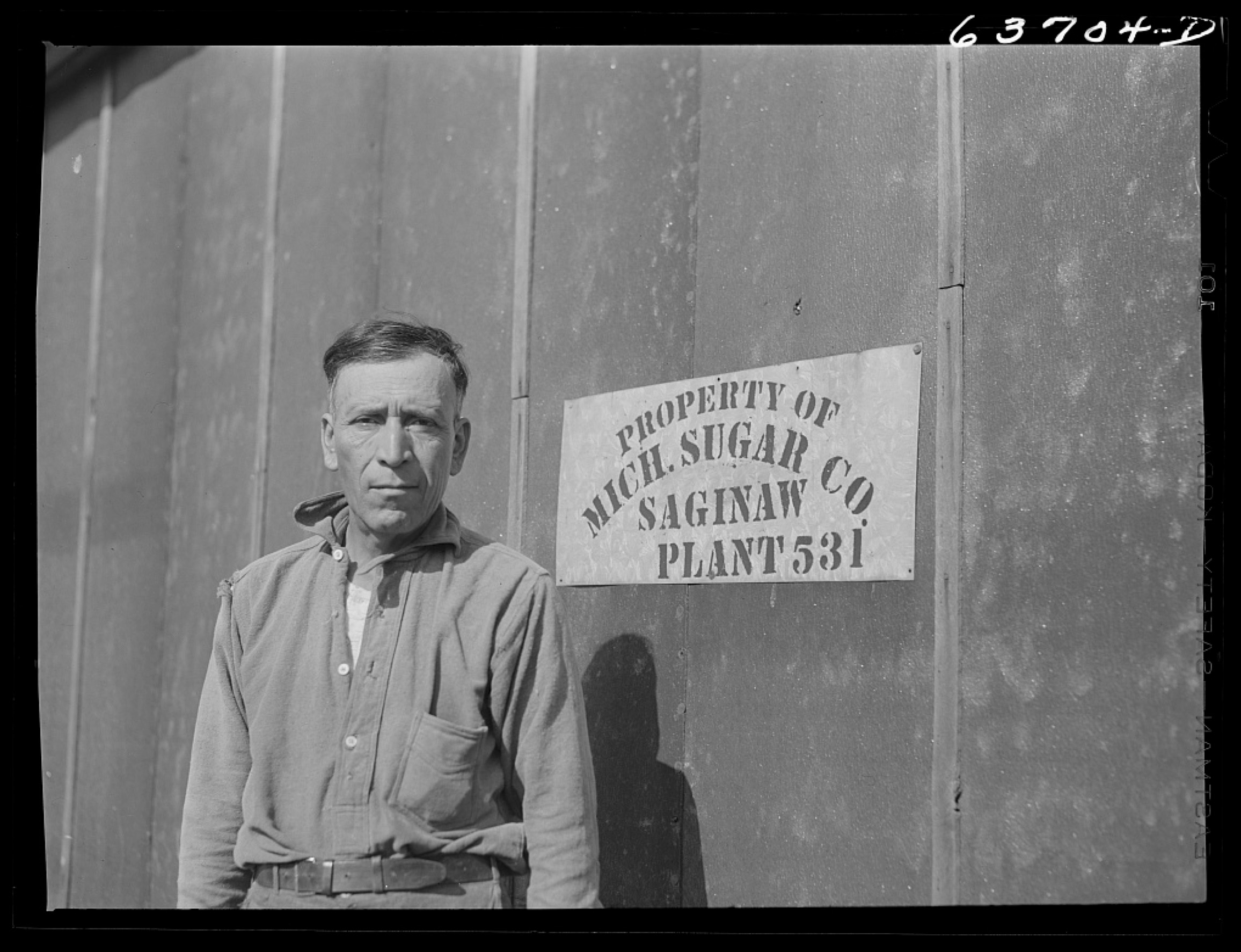Alyssa Tarrant is a doctoral candidate in the Department of Horticulture in the College of Agriculture and Natural Resources. Tarrant developed an online module to provide a perspective on farmworker labor history and issues to help inform Michigan’s horticulture industry.
I get goosebumps in the produce aisle at the grocery store. This started in the first semester of my graduate program in the Department of Horticulture after learning that many of the fruits and vegetables stocking the shelves are hand-harvested. Farmworkers are the reason Meijer is a constant cornucopia. But when farmers are the primary stakeholders in the research done at land-grant institutions and it’s their perspective that dominates in the classroom, the role of farmworkers in fruit and vegetable production is reduced to an economic bottom line — referenced only as “labor costs.”
This framing isn’t surprising. Throughout my graduate work, farmers have commonly named labor as their biggest challenge — it is hard to find and increasingly too expensive. Hearing this repeated over the past six years on farm visits and at grower meetings, I began to wonder when farm labor became such a highly cited problem in Michigan horticulture. Spurred by my curiosity and supported by the abundant resources available through MSU Libraries, I began trying to answer this question.
I found that farm labor woes are as old as Michigan horticulture, starting with the introduction of sugar beets in the late 1800s. At the time, sugar beets were a labor-intensive crop, requiring more people to plant, weed and harvest than was available on a family farm. Having invested heavily in processing facilities, sugar beet industrialists started recruiting migrant farmworkers to help farmers cultivate a profitable crop. But the strenuous nature of sugar beet farming made it hard to keep workers in the field, so recruiting efforts were continually adapted to target new populations and leverage changing immigration policy. As the sugar beet industry mechanized cultivation, their reliance on workers waned. Many of those farmworkers transitioned into Michigan’s fruit and vegetable industries, where they remain integral to the abundance many of us take for granted. 
Knowing the history of farmworkers in Michigan gives necessary perspective to understand current farmworker and farm labor issues in the state’s horticulture industry — something students will certainly encounter as horticulture professionals. However, this context was missing in our horticulture classes. Seeing this gap in our education, Maddy Braxton, a 2021 environmental studies and sustainability graduate, and I co-developed an online module for the undergraduate vegetable production course exploring the history of Michigan farmworkers, current farmworker challenges and proposed solutions to farm labor shortages.
The module continues to be used as part of the curriculum in the undergraduate vegetable production course HRT 341. My hope is that the lesson plan broadens the stakeholder perspectives MSU Horticulture students are exposed to, so as professionals in the industry, they are better able to consider farm labor from multiple viewpoints, not just from farmers’ point of view.
We designed the module to be easily adaptable in hopes that this context could be integrated into other MSU curricula as well. The module isn’t comprehensive, but serves as a starting point for Spartans to continue building on. And as I receive feedback on the module, I update it accordingly. But as I near the end of my program in December 2023, I would love to pass it on as a living document to the next generation of Spartans!
We hope this broader context provides a foundation for students to be able to grapple with the complexity of farmworker and farm labor issues. By understanding the root causes of these issues, and the systems and power structures that allow these perennial problems to persist, we can more thoughtfully and inclusively seek solutions that will benefit both Michigan farmers and farmworkers.
July is Migrant and Seasonal Farmworker Appreciation Month in Michigan. This month MSU is recognizing the experiences and contributions of migrant farmworkers and Latino/a farmers. Join our campus community in supporting the College Assistance Migrant Scholars Program.

